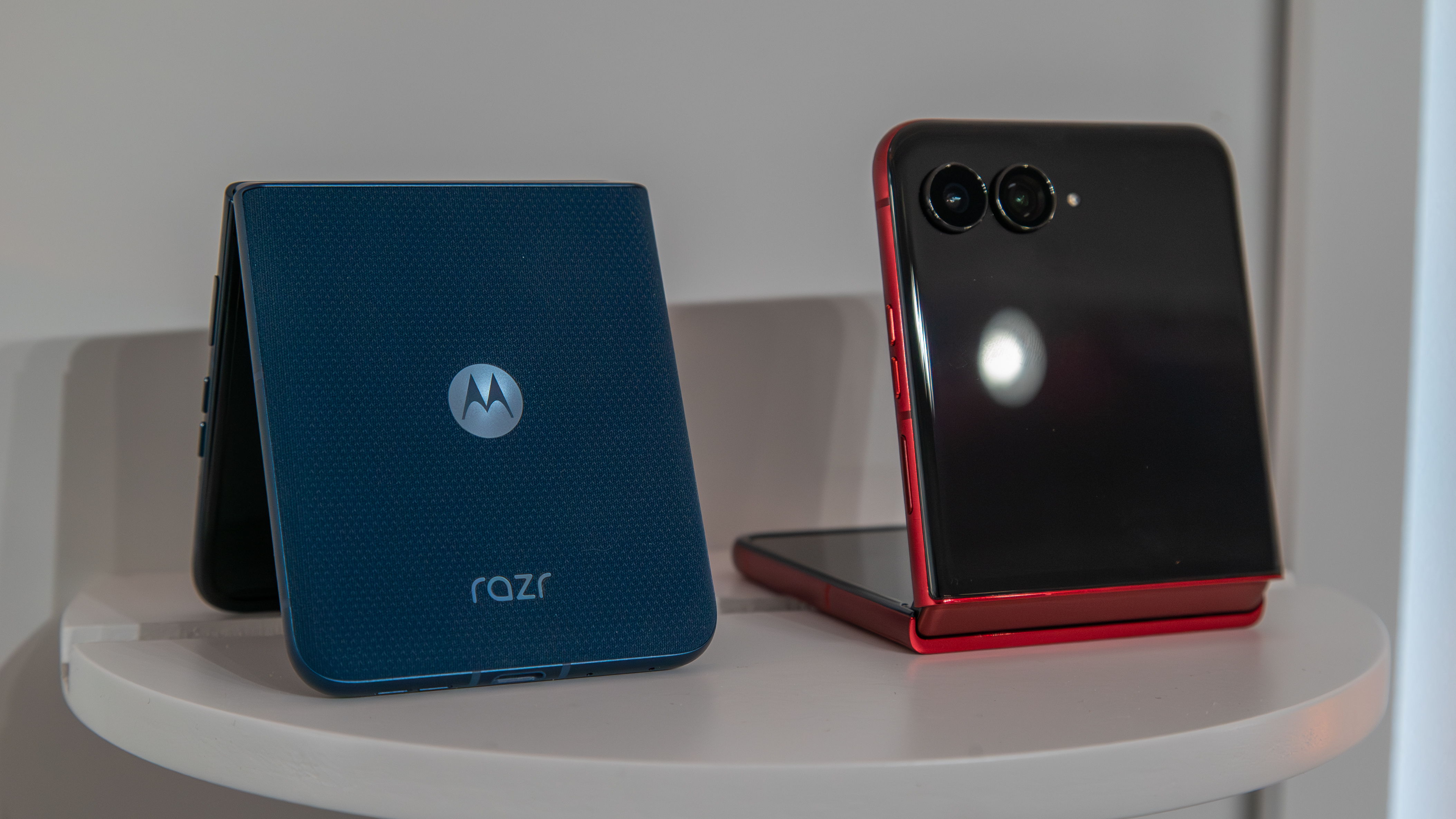BlackBerry DTEK60 review: A great Android phone and the best BlackBerry
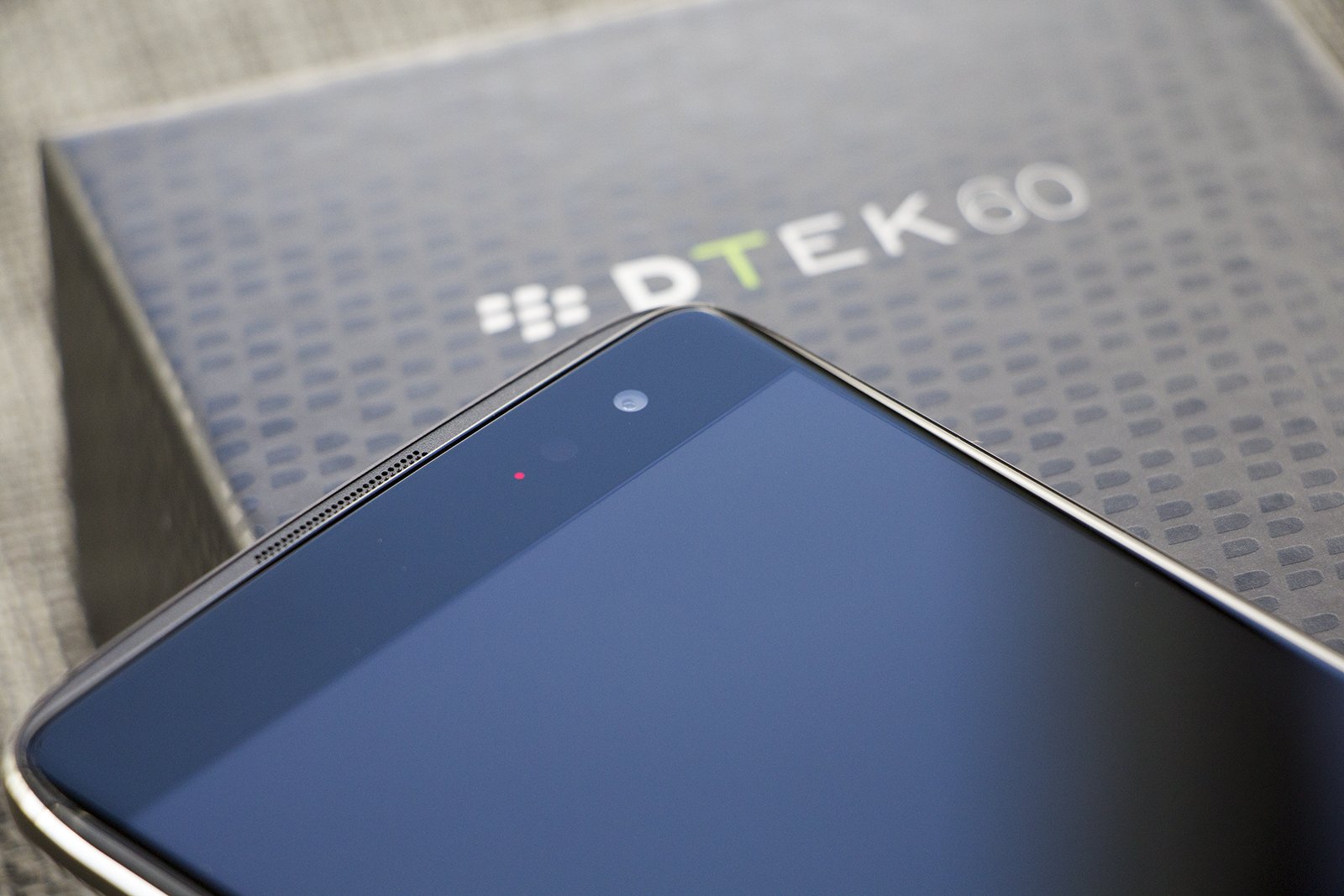
No, I haven't lost my marbles. The BlackBerry DTEK60 really is that good.
Like a lot of Android fans and people who write words about phones for a living, I chuckled and instantly dismissed the DTEK60 before it even arrived. BlackBerry having Alcatel make a phone for them and deigning to charge a premium price for it sounded like a recipe for disaster much like the Priv. Good phone, great phone — none of that matters when you're competing against the Samsung juggernaut, especially when you have BlackBerry's reputation (mostly unfair, in my opinion). I mean, come on. Is BlackBerry even still in business? They lost about 99% of their market in the past five years and everyone outside a small group of the BlackBerry faithful has written the company off. What could they possibly do to turn things around?
You start by making a phone like the DTEK60, that's what.
Before we go too deep here, you need to take a few minutes and read through one of the most comprehensive phone reviews ever written. Bla1ze has detailed every single feature that BlackBerry's Android has and you'll have a great understanding of how the company stands out in an ocean of companies building Android phones.
Read: CrackBerry's complete DTEK60 review
We start there because the software is what makes the DTEK60 worth looking at. The hardware isn't bad — Snapdragon 820, 4GB of RAM, QHD display, and even an SD card slot. It's the same configuration as every other "flagship" Android phone sold since last March. Drop all that into a fairly nondescript package from Alcatel parent, TCL, and you have nothing that's going to catch anyone's eye. The $499 price tag also isn't going to grab your attention and suck you in because there are other phones using equal or better hardware that hit that price or are cheaper. This is a problem almost every company that makes Android phones is up against — a good phone at a reasonable price just isn't enough in a world where Samsung and Apple exist.
A good phone at a reasonable price just isn't enough in a world where Samsung and Apple exist.
The phone itself flies. You can ask any of the people using one every day and they will tell you the same thing, From a performance standpoint, the DTEK60 will do everything you want it to do with nary a whine or whimper. The usability — good hardware combined with good software — of the DTEK60 does a commendable job making up for the one glaring hardware blunder: not including image stabilization in the camera. Honestly, that's the only real fault I can find with the phone hardware that's not a matter of opinion or preference. In late 2016, if you make a smartphone you need to have a kick-ass camera on it.
Be an expert in 5 minutes
Get the latest news from Android Central, your trusted companion in the world of Android
- 5.5-Inch QHD AMOLED display
- 2560X1440 (534ppi)
- 21MP rear camera
- ƒ/2.0, Phase Detect Auto Focus,
Dual-LED flash - 1080p 60fps video
- 8MP ƒ/2.2 front camera
- 3000mAh fixed battery
- Qualcomm Quick Charge 3.0
- Snapdragon 820
- Adreno 530 GPU
- 4GB RAM
- 32GB internal storage
- microSD expansion
- Android 6.0.1 Marshmallow
- On-screen BlackBerry keyboard
- Contextual auto-correct
- Touch-sensitive gesture control
DTEK 60 hardware
Using the DTEK60 for a busy week filled with too much running around on the T-Mobile network left me with no complaints. Battery life was between acceptable and good while syncing all my stuff and all of Android Central's stuff. Call quality was exceptional (the DTEK60 has the best speakerphone I've ever used). The data connection was great around my home where T-Mobile offers good service and as good as any other phone in the places where T-Mo can be spotty and plain bad. The fingerprint sensor is fast and accurate.
The DTEK60 has the best speakerphone I've ever used.
Bluetooth worked with my MotoROKR headphones and a handful of standalone car speakerphone setups. The screen could be better in the sun, but it's as good as the Nexus 6P which always worked well enough for me. Since I don't take a lot of pictures with my phone, I had no complaints. Everything was good, but plenty of other phones are all good when it comes to things like battery life or call quality.
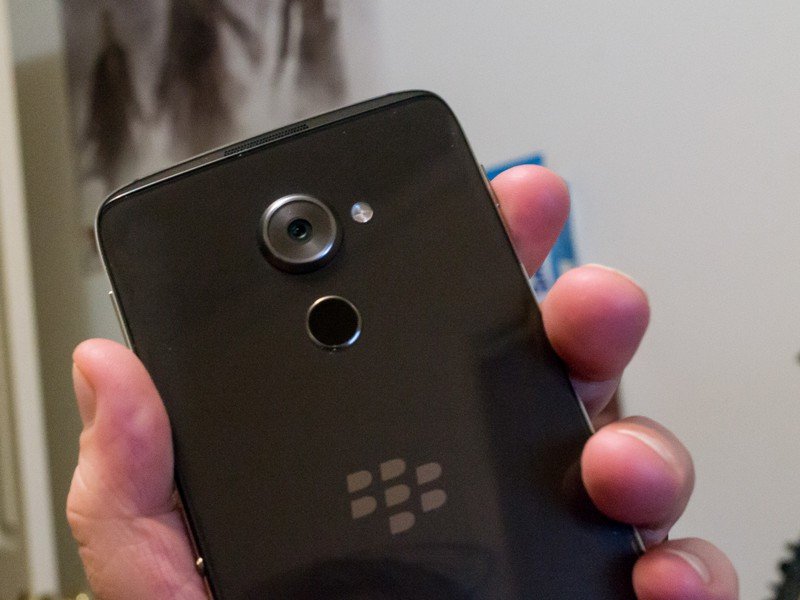
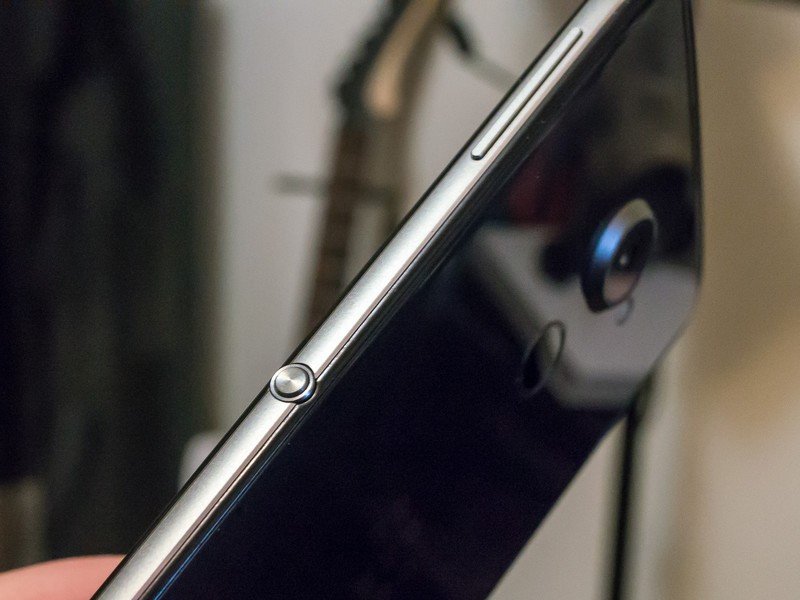
The glass back is expected on most any phone built nowadays, but the addition of a programmable convenience button wasn't. It works well after you set it up to open one of the things that you often need to use. The DTEK60 is a completely unassuming package that more or less matches everything else worth buying in its price range on the outside.
So what makes the DTEK60 one of the phones I would suggest a person spend the money they worked hard to earn and buy? The software and the "total package" it brings to the table.
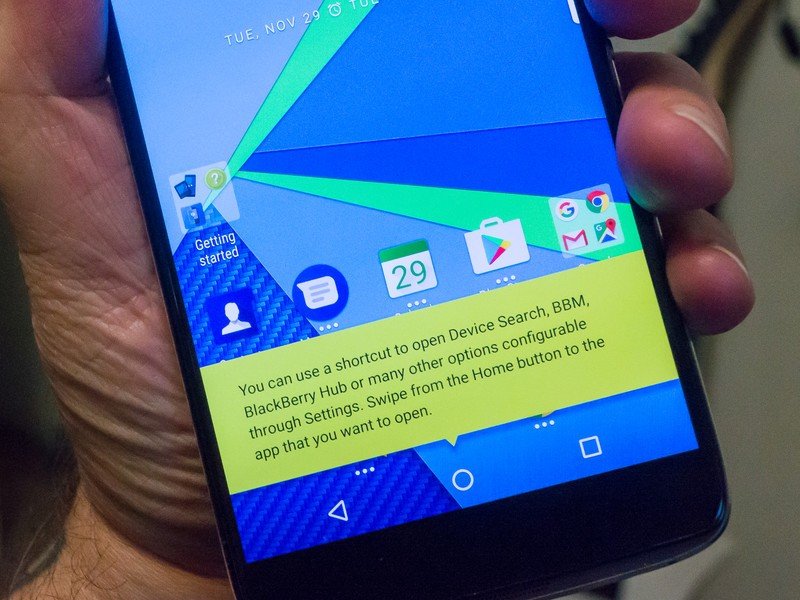
DTEK60 software
When you turn on the DTEK60 you know it's running Android. You also know it's a BlackBerry. The company has mixed the two to create the best BlackBerry consumer phone ever offered in a way that will appeal to people who like using Android.
That's not easy to do. Motorola does it. Every now and then a company like Alcatel will do it. But most of the time, it's not very successful and it takes some user dedication to getting rid of the things that need to go and adding the things that are missing — the ASUS ZenFone 2 was a great example of this. It was a great phone after you made it a great phone.
The alternative is to follow what companies like Samsung and LG are doing and replace everything you can replace. That's great for the Samsungs and Hauweis of the world who can afford it (software developers don't come cheaply) and whether you like the style of their products or not, you can't deny that these companies deliver a complete product filled with things that just work once you log into them. And companies have to be successful with how they change the operating system, because if every phone ran plain vanilla Android, everyone would buy either a $100 Moto E or a Pixel and we would be out of a job.
BlackBerry's take on Android is what makes the DTEK60 stand out.
Things haven't really changed since the Priv introduced Android on a BlackBerry. The software looks and feels like vanilla Android with BlackBerry's complete suite of services and software installed. But BlackBerry has improved at writing Android code, and the DTEK60 has hardware that's a good bit more powerful. BlackBerry's application suite includes the launcher (complete with swipe gestures and shortcuts), the excellent software keyboard, an OS-integrated password manager and BlackBerry Hub and Productivity tabs. To offer the Hub integration BlackBerry users expect the contacts, calendar, and dialer apps have been customized. These apps, as well as BlackBerry Tasks, work with the productivity tab so everything is where you would expect it to be if you're interested in using it.
It just so happens that I'm not a fan of either the Hub or the Productivity tab. After seeing if there were any differences specific to the DTEK60 (there are none) I turned off and disabled both. There's nothing wrong with either, but they just don't fit into the way I do things and I'm too old to adapt and try new things.
It just so happens that I'm not a fan of either the Hub or the Productivity tab.
Even without these services in use, I find my core set of communication apps, namely contacts, calendar, and dialer, are easy to use and do the things they're supposed to do in a logical and easy way. No, it's not exactly the same as the way Google does it. But it's all done well and doesn't force me to change from how the Google way does those same things. Of course, BBM is included because you can't make a BlackBerry without adding BBM to the pot. I just wish more people used BBM because the service is feature-rich and secure (unless you live in a few countries in Asia where "the man" has access). But talking to yourself gets old, and Phil is never online (read my message with the teddy bear stickers, Phil).
Oh, and a note about Nougat. It's coming, we know that. But this runs Android 6.0.1 Marshmallow, which is fine, because it's fast as hell, but it still would have been nice to see this running 7.0.
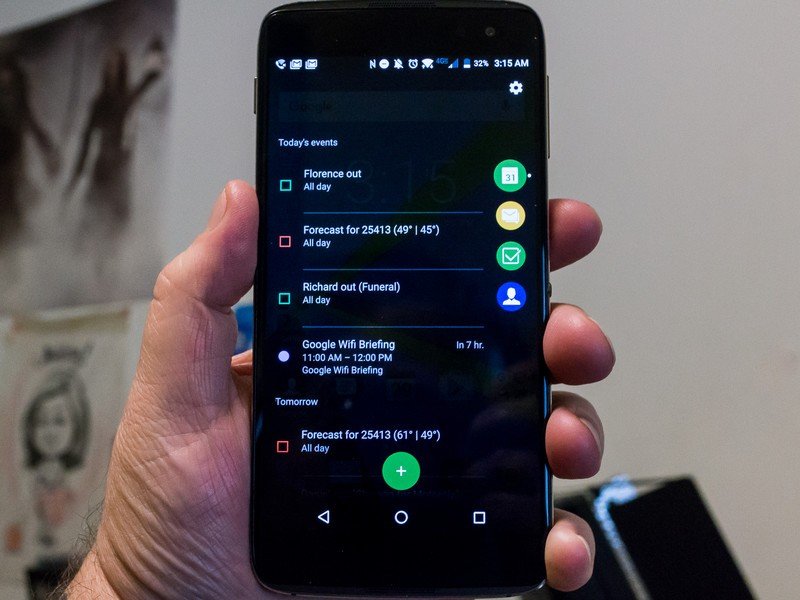
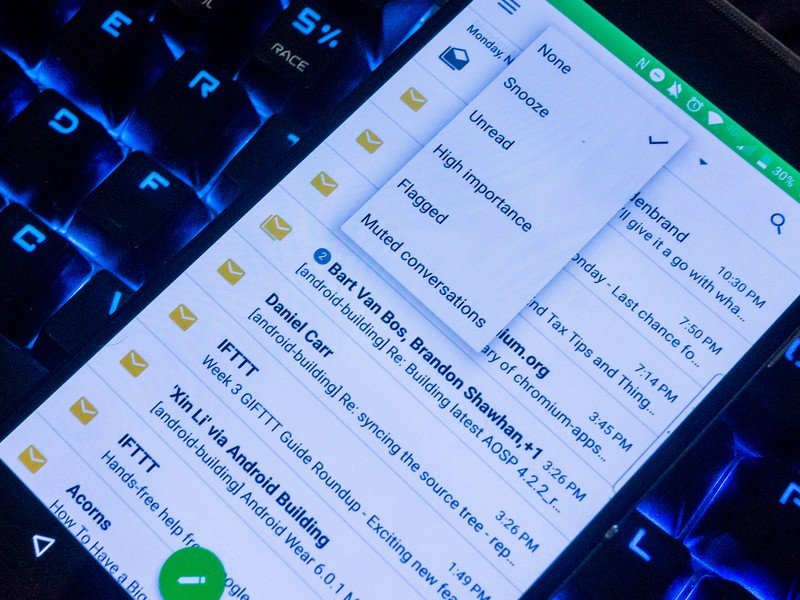
Building software that offers expanded functionality yet is still great when you don't use any of it isn't easy, but BlackBerry nails it. What started on the Priv is now finished on the DTEK60, and I can say I like BlackBerry's take on the core Android experience. Who'd have thunk it?
Other changes are cosmetic and the rest of the vendor software — things like the clock or the settings work just like they work on a Nexus or Pixel phone even if the colors and graphics have changed. We were impressed with how Motorola managed to do this a few years back, and we're just as impressed with the way BlackBerry has done it.
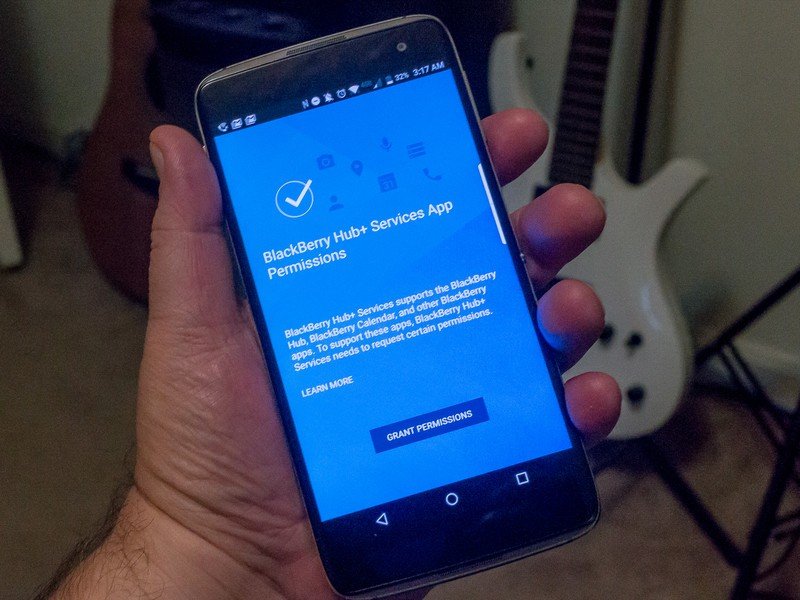
DTEK60 security
The DTEK60 has proven to be as secure as promised. We aren't sure of the exact details on some of the things BlackBerry does to make it so, but they take everything Android from Google offers on the security front and add to it.
BlackBerry doesn't take away any of the security features Google has implemented when they add their own.
The kernel is further hardened, the base system ha protections to keep from being modified and to stop everything to wait for the user to decide what to do if it were to happen. The boot services are secured in a similar way on top of the standard encrypted lock. Add in the fact that BlackBerry has never been even an hour late on any Android security bulletin updates (they're usually early and the first to receive them) until you add a carrier who doesn't care that you receive them on time (that means AT&T — they don't care about your online security as much as Google or BlackBerry) and you can't argue with BlackBerry's claim that the DTEK60 is the most secure Android phone available.
There's also a DTEK app (which stands for Detection) that doesn't really contribute to any of this that the company insists on keeping around and talking about. It alerts you that you may not be as secured as you could be without any advice what to do about it or any helpful information with a meter and a scary red section. It's not hurting anything, it's just not very useful the way it is. I hope BlackBerry improves it or drops it rather than spend any resources maintaining it the way it stands.
The most important thing about this security feature stuff from a user standpoint — their full disk encryption methods (FIPS 140-2 compliant if you work somewhere that makes that mean something) — doesn't bog everything down. A big part of the random 10FPS lag-glitch we see on the Priv can be attributed to file system performance. That's fixed on the DTEK60.
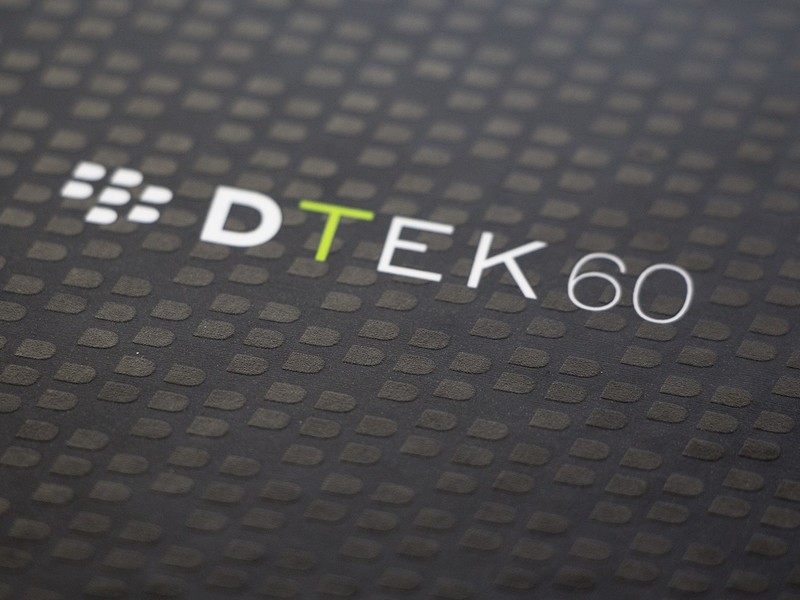
DTEK60 final thoughts
BlackBerry has taken Android and made it their own. The Priv showed promise but performance issues put a damper on any excitement most people would have for it; the DTEK60 is what it looks like when it all works as intended and runs well. They done good. Real good.
The DTEK60 is more than just a phone for ex-BB users.
The price is in that tough spot where you can find some great stuff. Phones between $300 and $500 are now considered cheap when they offer top of the line hardware and a great interface to do things with it. I think BlackBerry's attention to user security and privacy is something that adds plenty of value and makes the DTEK60 stand out from other good phones at the price point. Especially when it comes without any drawbacks to using it.
If the Pixel was never built, I'd probably use the DTEK60 as my phone — the one with my own SIM card that I won't be resetting or changing until something replaces it next year. The core software experience is great right out of the box and even things you've not used before work the way you would expect them to work. If a friend or family member said they were buying a DTEK60, I'd say it's a great choice, and if they were looking to buy a new phone I'd point them at it. I liked (and used) the Priv right up until I got the DTEK60 and expected it to be usable. I didn't expect it to be this good.
BlackBerry did a great job on the DTEK60, and it's more than just a phone people coming from "old" BlackBerry should look at. You should look, too.

Jerry is an amateur woodworker and struggling shade tree mechanic. There's nothing he can't take apart, but many things he can't reassemble. You'll find him writing and speaking his loud opinion on Android Central and occasionally on Threads.
